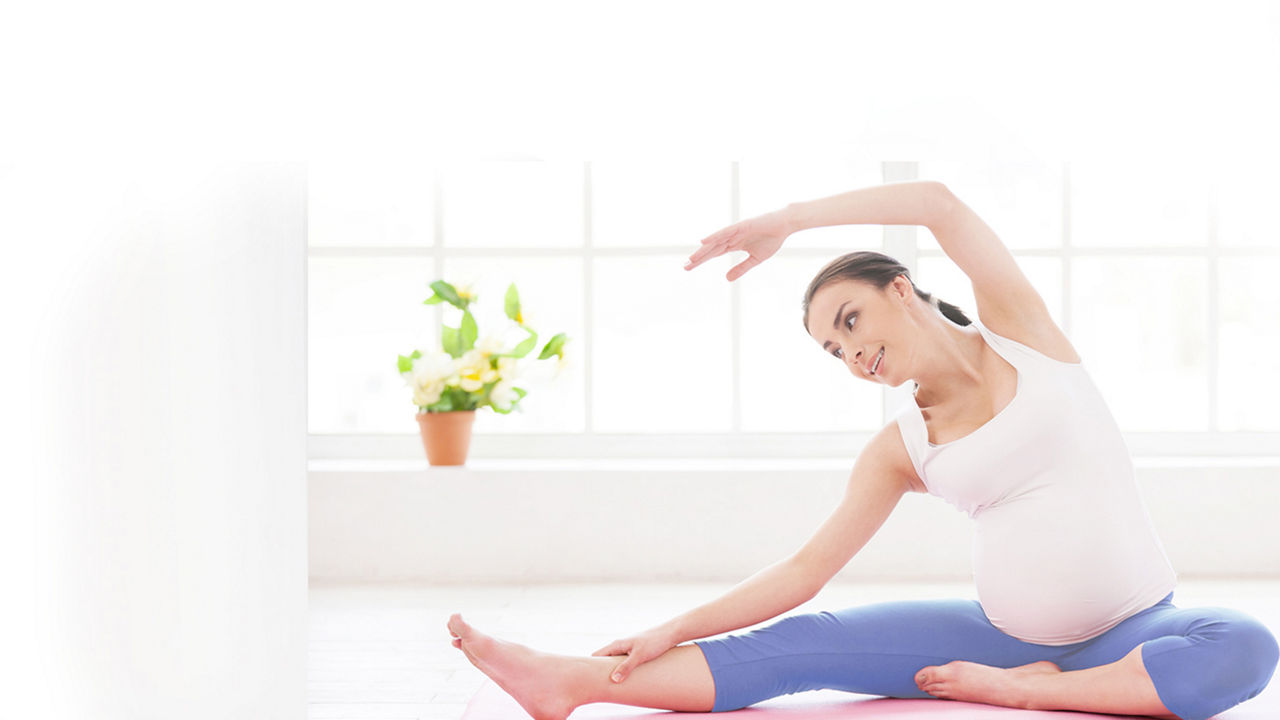Breastmilk is the best for babies. The World Health Organisation recommends exclusive breastfeeding for the first six months of life. Unnecessary introduction of bottle feeding or other food and drinks will have a negative impact on breastfeeding. After six months of age, infants should receive age-appropriate foods while breastfeeding continues for up to two years of age or beyond. Consult your doctor before deciding to use infant formula or if you have difficulty breastfeeding.
- Week 1
- Week 2
- Week 3
- Week 4
- Week 5
- Week 6
- Week 7
- Week 8
- Week 9
- Week 10
- Week 11
- Week 12
- Week 13
- Week 14
- Week 15
- Week 16
- Week 17
- Week 18
- Week 19
- Week 20
- Week 21
- Week 22
- Week 23
- Week 24
- Week 25
- Week 26
- Week 27
- Week 28
- Week 29
- Week 30
- Week 31
- Week 32
- Week 33
- Week 34
- Week 35
- Week 36
- Week 37
- Week 38
- Week 39
- Week 40
In sport and physical activity you should not miss during pregnancy. Read here, what sports are now ideal for you and what you should consider.
How many sports can withstand my baby in my stomach? If the vibration while jogging is not too strong? Should I prefer to dispense with strength training and just make pregnancy yoga? Such questions employ any physically active expectant mother. But do not worry - as long as you do not belong to the risk pregnant women, giving doctors the go-ahead: What is good for you, not harms your baby.
Why is sport during pregnancy healthy?
We need regular exercise at every age and at every stage of our lives. And during pregnancy does sports particularly well. He counteracts the typical back pain and water retention and is good for your mental balance. And do not forget: With trained abdominal and pelvic floor muscles and good condition, you are better prepared for the strains of the birth. And after the birth you will quickly fit again.
How much exercise is healthy?
You should be able to talk relaxed during the sport - then the intensity is just right.
Particularly beneficial: water sports
Swimming, aqua jogging, aqua spinning or aqua fitness maintain health and fitness expert for the best and safest sports variants for pregnant women. Even in advanced stages of pregnancy, you can still easily move in the water, your loaded by the weight gain joints are spared. Your body is supplied with oxygen and trains the major muscle groups legs and back, torso and arms.
"Listen to your gut and do not overdo it"
But even on dry land you can keep fit with baby tummy. Light aerobic exercise such as walking, jogging, cross-country skiing or cycling, as well as muscle training like Pilates or yoga at the gym are allowed. But you should not overdo it while listening to your body. Tabu are extreme loads and martial arts and sports with risk of falling such as skiing, horseback riding or rollerblading. As a sports novice Please avoid even ball games and sports games with jumps and enemy contact. It is advisable to start with simple activities such as walking or swimming and duration gradually increase the training frequency and is.
What is to about to give birth?
In the last third of pregnancy will probably reduce their training because the more exposure to child and abdominal girth makes smooth, rapid movements virtually impossible any expectant mother. In addition, the risk of injury is higher now because the pregnancy hormone progesterone relaxes joints and ligaments, to make the pelvis for childbirth flexible. Ultimately, will certainly tell you your gut feeling, what you and your baby is doing well and what does not. Cycling, swimming and water aerobics, you can practice until shortly before the birth but still.
Our Tip
Swimming is especially soothing and easy on your joints loaded!
Sport after childbirth
After the birth you should and your body first of all enjoy peace and during the postpartum period Once get your strength back. Go your sport stint in small steps, start with postnatal exercises, stretching exercises and muscle toning. Then you can gradually return to your familiar Fitness program. After a Caesarean you should refrain 6 to 8 weeks entirely on sports until the seam has healed well.
When do I have during sport to watch or operate no sports?
You should consult your doctor if -:
- You are expecting multiples
- You are suffering from hypertension
- There is a risk for premature labor
- They have a low-lying placenta
- A stronger spotting occurred
- You had problems with the lower back or the hip joints
- You have already suffered a miscarriage
Join our AptaAdvantage Club today to enjoy:
- Educational content to support you on your motherhood journey
- Various complimentary classes and exclusive discounts with our key enrichment partners
Kickstart your AptaAdvantage experience by signing up HERE.
Related articles

Connect with our team of experts
We provide advice and support for you on your parenthood journey




